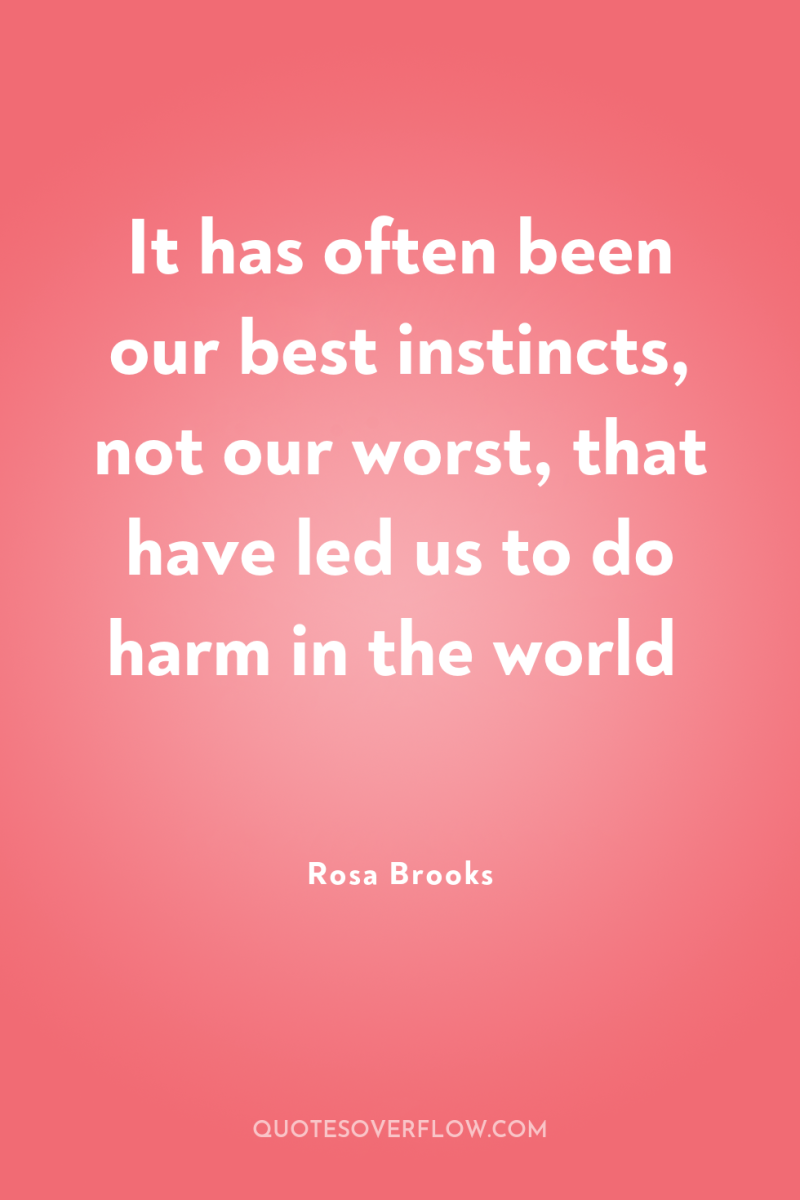1
...And unpredictability can spread: one powerful outlier can pave the way for others, and as more states joint the outlier, the foundations of the rule of law begin to crumble. U S counterterrorism practices--and the legal theories that under-pin them--are undermining the international rule of law in precisely this way...Rosa Brooks

2
It has often been our best instincts, not our worst, that have led us to do harm in the worldRosa Brooks
3
What line separates the lawful wartime targeting of an enemy combatant from the extrajudicial murder of a man suspected, but not convicted, of wrongdoing? (p8)Rosa Brooks
4
I don't believe that humans can be reduced to homo economicus, but as a group, government officials are remarkably sensitive to financial, political, and reputational costs. Thus, when new technologies appear to reduce the costs of using lethal force, their threshold for deciding to use lethal force correspondingly drops. If killing a suspected terrorist in Yemen or Somalia or Libya will endanger expensive manned aircraft, the lives of U.S. troops, and/or the lives of many innocent civilians, officials will reserve such killings for situations of extreme urgency and gravity (stopping another 9/11, getting Osama bin Laden). But if all that appears to be at risk is a an easily replaceable drone, officials will be tempted to use lethal force more and more casually.Rosa Brooks
5
We prefer to imagine brutal wars and atrocities as events that "just happen" every now and then, much like tornadoes or lightning strikes; this metaphor suggests that we can't generalize from them, since they are radically discontinuous with ordinary life. But wars and atrocities do not "just happen": societies and individuals slide into them, little by little, one tiny decision or omission at a time. (p214) .Rosa Brooks
6
While it is a truism to observe that if humans were angels, law would be unnecessary, we could equally turn the truism around, and note that if humans were devils, law would be pointless. In this sense, the law-making project always presupposes the improvability, if not the perfectibility, of humankind. Whether our view of human nature tends toward Hobbesian grimness or Rousseauian equanimity, we tend to think of law as critical to reducing brutality and violence.Rosa Brooks

7
It takes a whole government to really screw up a war. A dollop of American hubris goes a long way too.Rosa Brooks
8
Most fundamentally, the U.S. military is–and will continue to be–a product of our culture and our collective decisions. Whatever it is, it's what we have made it.Rosa Brooks
9
The U.S. government has a long history of overclassifying information that shouldn't be classified at all–and keeping information classified until long after any justification for classifying it has disappeared.Rosa Brooks
10
Many at the State Department think its their job, not the Army's, to develop cultural and regional expertise and relationships. In such quarters, the RAF concept looks less like an innovative approach to global risk management than yet another military effort to replace diplomats with soldiers.Rosa Brooks
11
As budget cuts cripple civilian agencies and programs, they lose their ability to perform ad they once did, so we look to the military to pick up the slack.. .. This requires still higher military budgets, which continues the devastating cycle.Rosa Brooks